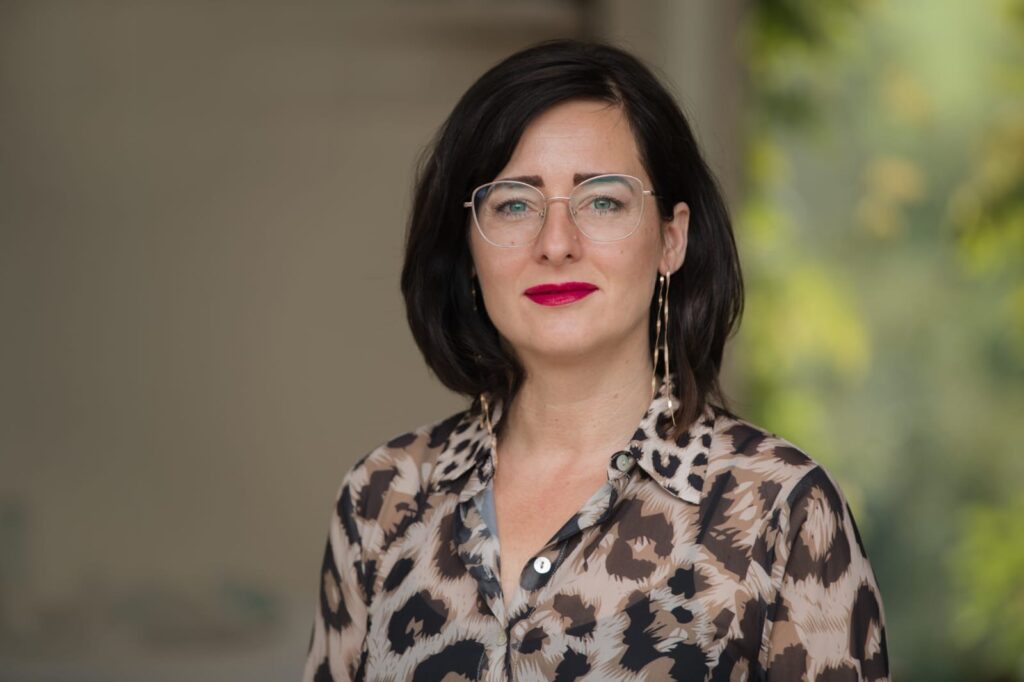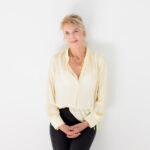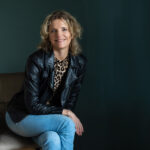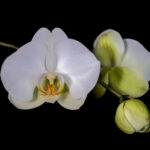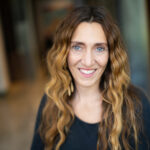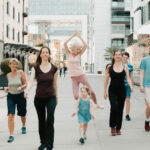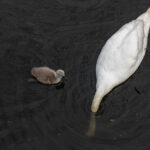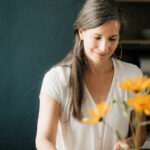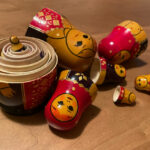“For the first time in this life, it feels totally beautiful to be a woman.”
Natalie (Germany)
For most of Natalie’s life, her experience of being a woman was not pleasant. She remembers not wanting to be a woman from a very early age, but it was not until she was around thirty, when the memory of being sexually abused as a child was revealed, that this finally made sense. She may have buried the memory of the abuse, but she still moved with it every single day. Natalie shares here how as she let go of what had occurred she came to embrace the beauty of being a woman and the inner strength that it is.
You shared that for a long time, you did not want to be a woman, that instead you wanted to be a man. In what way did this play out in your life?
I looked like a woman and dressed accordingly, wearing lots of makeup, wearing dresses and keeping my hair long so I looked feminine, but at the same time, I wanted to be more like a man in order to protect women from being abused. I carried the belief that as a man you can protect women, but not as a woman.
Can you share how this changed?
I have come to realise that there is a deep connection to myself that feels like the most precious part of me: not a body part, but a very precious part. It is always there.
You can try to shut it down, and this is what I did for so long, or you can try to disconnect from it, but it is always there. It is incorruptible. Through the connection with this sacred part of me, there is a sense of settlement and feeling safe no matter where I am and who I am with.
For example: I went to a hotel at the beginning of this year. I got into an elevator and four men joined me. They were drunk and there was a sleaziness to how they were behaving. If this had happened in the past, I would have hardened up to protect myself and would have been rude and reactive. But in that moment, I remained with that deep inner steadiness and felt safe, knowing that whatever happens it doesn’t have to disturb me. The men immediately stopped their behavior and comments, and while leaving the elevator they seemed to apologize, with the words, “Never mind.” It felt like they had been caught out and were ashamed.
What has been your view on motherhood and having children?
I knew since I was young that it was not part of the plan to have children in this life. I remember playing with friends and they would like to play mother, father and child but I could not relate to that. I never asked myself why; it was just not in my thoughts. I knew I was not going to be a mother. I had a friend who always said that she would like to have children. I said: “I cannot imagine having children.” Later on in life, I found excuses for not wanting to be a mother.
You felt you needed excuses?
Yes, I have observed that, as a woman, you need to excuse yourself for not wanting or having children.
I felt the pressure of a society that says, you have to have children, instead of saying, you can have children if it is true for you.
Regardless of what age you are, you have to excuse yourself anyway. My excuses were things like, “I don’t want to be like my mother” or “I want to have a career.” When you use excuses like these, society is more okay with it, and is less invasive, even though you are being judged anyway when you don’t want children. Many women use excuses like these. I have heard them often.
Was that true for you, that you did not want to be like your mother?
Yes, it was. She did not mother me at all. I had felt, from a very young age an imposition and jealousy through my mother. She became a mother because my father wanted to have children, so she went along with it. I sensed that as a child. She told me that she did not want me and that I disturbed her career. That is why I felt she was not mothering. I had a deeper connection with my father than with my mother, and that made her jealous. But I have always been very absolute that it was not part of the plan to have children.
What do you mean by ‘the plan?’
It’s like a deep and innate knowing; a feeling you have within about how life will be. I did not know exactly what the plan was for me, but one thing I did know was that I would not have children. And that never frightened me.
For many women, having children and a family is a big purpose in their life. A lot of their time goes into having a family and raising their children. And if that is not the case, then the focus can go onto having a career. You never questioned what life would be about without children?
I know for many women, being a mother is a huge role in their lives, but for me, it just did not exist. I knew life would be taken care of. I have never missed anything. I never felt like I had to fill a gap in my life by having a child, because to me, there was no gap.
There was never the question: if not a mother, then what should I do/be?
That question was never there. We as women can be fed that we have to establish something meaningful, like having our name on an orphanage or travelling with a caravan around the world. We can be grabbed by this outer seeking because we don’t feel complete on the inside. But I never felt incomplete, even though the whole system of society is trying to feed me that I am not.
That could not grab me.
I can see that many women have a child from a sense of incompleteness, from thinking they need something to fill up an emptiness. But that completeness, you don’t get by having a child.
I have come to realise that the feeling of incompleteness comes from a lack of being connected to that innermost essence we discussed earlier.
At some point, most of my friends had children. There was one friend, who never wanted to be touched or hugged. She didn’t have boyfriends, and she could not sleep with a man in one bed, but at some point, she got married and had a child. This was remarkable for me, in the sense that something can change, and then you have children. For me, it was a no, which was absolute. I have seen women using the same excuses I did, about why they did not want a child, but some of them did end up with children. I feel some women have children even though they do not want to, for as women, we can be made to feel that we have to, because that is what you do as a woman.
How did not wanting to be a woman play out in your relationships?
I had boyfriends and partners but there was no intimacy in the true meaning of the word. There was always some kind of barrier. The relationship went to a certain point, but never further. I never lived with a partner and was working all the time. I demanded how they treated me; they could not do what they wanted, because I was in control. I said what they could do and what they couldn’t do. I did a lot of martial arts and a lot of heavy weight training. I was always competing with men. And I always had more male friends.
Was turning thirty or thirty-five a thing for you?
No, never. People would say: “Wait till you are older, then you will want children.” Or… “Wait till you are thirty-five then there will be this panic and you will be desperate to be a mom.” But for me, there was nothing like that. All those projections never impacted me.
The abuse that took place in my childhood, I did not remember for a very long time. Some glimpses came to me though when I was around thirty. I had a healing session, and the practitioner asked me if I had been abused. I answered the question with ‘no’ but then about four or five weeks after the session, I started to remember it more. This explained a lot for me; for instance, why I behaved the way I did in relationships and why I wanted to be a man. Now I could start dealing with it and healing the scars.
What changed for you when you started to deal with it?
What changed? One example is that I could no longer have the kind of sex I had had, with the control and manipulation. My reactions towards attention from men also changed. And I started to feel the hurt that I had buried. I also stopped using tampons; they felt like a hormonal spiral, invasive and disturbing. It feels like tampons shut off your period; you cannot feel it flow; you can hardly see that you have your period. So, things like that.
To ensure that I didn’t get pregnant, I had started using the pill when I was fifteen or sixteen. After that, I used a hormonal injection, every three months. That is like a contraceptive, but you don’t get your period. I used that for six years, and then I had a hormonal spiral (IUD), which I had for about four to five years. During those years, I also did not have a period. And when the realization came about the abuse, I immediately realized that the spiral IUD was disturbing me, so I had it removed. After the removal, it took two weeks before I got my period for the first time, and from then on it was regular. I never had a regular cycle before I started taking the pill. I noticed that I had become very sensitive to what my body showed me during my period. For example, pain or no pain, the quality of the blood, the quantity, and how many days I had my period. It was a new development of my entire way of living, not just the sports, but also how I ate, how I slept; that also changed. I became more aware of how I was living.
I stopped doing CrossFit because I started to feel how this excessive amount of weight training had on my body. For example, if I had done a lot of training with heavy weights, I had more heavy cramps during my period.
You shared that being a mother is not part of the plan in this life. Do you have a sense of the plan now that you are older?
It is clear to me that I am a reflection for those around me, as a woman who has experienced abuse, yet now remains connected to herself and to her inner sense.
Over the years, I have opened up a lot. In the beginning, when I hugged somebody, I could feel the contraction in my body, and they would have been able to feel it too. I started to open my heart more, and then at some point, I realized that I don’t have to consciously open up anymore when I hug someone because I am open all the time now. And then you start to have a whole-body hug, so not only from the heart but your whole body. Meeting friends or strangers, for me it is the same. I used to have heavy pain in my chest area, and as soon as I started to protect myself, the pain would come back. These days, I don’t have any pain. Now, when connected, I can hug somebody without any protection. In connection, I do not need protection.
Have you felt any pressure throughout your life about becoming a mother?
I was born in Frankfurt where there wasn’t any pressure like this. When I was thirteen, we moved to a small village in the countryside, and there, there was more pressure on women to fulfil the chore as a woman to be a mother. A lot of women didn’t have a career, or maybe didn’t even work at all. Their goal in life was to marry, build a house and get pregnant. Things have changed over the years, with many more women studying, but back then there was a big difference between cities and the countryside where I grew up.
Three years ago, I went to a meeting with my old classmates. We were from three classes of about twenty-five people each. There was only one other woman and I who were not pregnant or having children. And now that woman also has a child, so I am the only one without.
You shared that your mother did not mother you. What is it to mother, according to you?
To mother is about supporting a child in his or her evolution, and it is important to not treat a child like a child. I knew this when I was young, and I hated to be treated like a child. I was not treated as an equal. We tend to treat children as if they don’t know anything. Of course, you have to learn things as a child, but to me, it is disrespectful to say to a child “I will not tell you because you are a child. You won’t understand.” That is the worst thing to hear as a child. Both my parents would say that a lot to me.
Do you feel you are a mother, although you have not given birth?
Yes, I do, and it feels great. A client of mine (Natalie works as an osteopath), who is 62, said recently to me: “You are like a mother to me.” Mothering does not depend on having children or not, nor on age. Mothering is ageless.
I am often around children because of my work and a lot of my friends have children. I notice that children in the public are drawn to me. It feels totally natural for me to parent them. When children come over with their parents because they can’t stay home alone, they want to come again, even when this is not necessary.
They don’t have to be my children, to parent them.
Do you enjoy being a woman now?
Yeah, in full. And this has changed, not only on the inside but also on the outer. For example, before when I put makeup on, did my hair or painted my nails, it was just to override the lack that I lived with and to show off something that wasn’t there. Now the same activity is the expression of what is already there—the natural inner beauty—so then the makeup confirms that. It is a very different quality. And this beautiful quality of what it is to be a woman feels complete within becomes something that is shared with all those who come into my life.
✺
